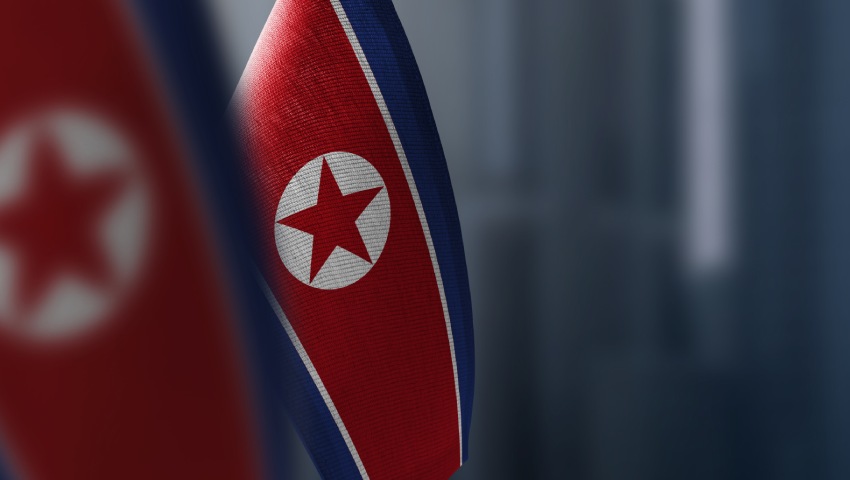Should the international community expect the regime to overhaul its geostrategic posture in response to new internal, regional and global developments?
To continue reading the rest of this article, please log in.
Create free account to get unlimited news articles and more!
Observers were hoping for a change in tone from North Korean leader Kim Jong-un ahead of his end of year address, which proceeded a five-day meeting of the Korean Workers Party.
South Korean President Moon Jae-in’s recent push for an end-of-war declaration has rekindled optimism, with an ‘in-principle’ agreement resurrecting hope of sustained peace.
But according to Bruce Klingner, senior research fellow, Northeast Asia at the Heritage Foundation, Kim’s speech “offered no hint of diplomatic outreach” or a moderation of the regime’s arms program.
Klingner expects the deterioration in economic conditions and fears of a looming famine to hinder peace talks.
An escalation in tensions, he adds, could be a more likely scenario.
“North Korea’s economic travails and pandemic concerns make diplomacy unlikely for the foreseeable future,” Klingner writes.
“However, the regime could always choose to engage in another major provocation to increase tension on the Korean Peninsula. It has done so repeatedly in the past.”
Pyongyang authorised short- and medium-range missile testing throughout 2021, with test launches of new long-range missile capability possible this year.
In his address, Kim directed military officials to push ahead with the production of multiple-warhead ICBMs, hypersonic glide warheads, tactical nuclear weapons, nuclear-powered submarines, military reconnaissance satellites, and long-range submarine-launched ballistic missiles.
Klingner also points to Kim’s condemnation of “market-oriented reform measures”, instead promoting state control and socialist economic policies.
Notably, Kim calls for a ramp up in agricultural production, consistent with socialist principles, to “strengthen the unified guidance and control of the state over economic work.”
“The extent to which Kim dwelled on improving the agricultural sector indicated an increasingly dire food situation,” Klingner adds.
“North Korea had acknowledged a ‘food crisis’ in mid-2021, and the regime’s continuing restrictions against foreign trade, combined with international sanctions and weather calamities, suggests the populace could face famine conditions before the autumn harvest.”
Other key priorities outlined by the North Korean leader was emergency COVID epidemic prevention work, rural development, and large housing development.
Kim also promoted ideological purity, emphasising the “struggle against anti-socialist and non-socialist practices”.
“It is not known if the regime has faced increasing resistance from the populace or perceives greater potential for insurrection,” Klingner writes.
“But the plenum statement portends a continued, if not enhanced, effort by Kim to repress foreign information from contaminating his subjects.”
Klingner notes that since assuming power, Kim has tightened border security, increased detection capabilities, and introduced a death penalty for the possession of foreign media and information.
So, what are the key takeaways from Kim’s latest public address?
According to Klingner, the speech provides little hope to optimists.
“Past New Year’s Day speeches provided fodder for those claiming that Pyongyang was pursuing economic reforms, implementing a more benign foreign policy, and interested in abandoning its nuclear arsenal,” he writes.
“Statements that were less vituperative in comparison with previous speeches were often perceived as messages of an enhanced regime desire for dialogue and improving relations. Some experts employed a Sherlockian dog-that-didn’t-bark logic to detect signals sent by what the regime didn’t say.
“This year’s missive allows no such interpretation.”
Klingner claims there is little evidence suggesting Pyongyang is willing to resume dialogue or negotiation.
“Pyongyang even rejected repeated international offers of food, humanitarian assistance, and pandemic vaccines,” he adds.
“The regime fears both the entry of the COVID virus and destabilizing foreign influence.
“Pyongyang will maintain its draconian isolation measures despite their impact on the national economy and the wellbeing of the populace.”
Reflecting on his tenure as leader of the regime, Klingner argues Kim has been unable to deliver on his promises to improve the wellbeing of the people or offer new policy solutions.
“Instead, he implores industries to boost production with nothing more than greater revolutionary zeal,” he explains.
“His 10 years in power have resulted in continued economic and food calamities, human rights violations, and political repression.”
Klingner claims while the “pervasive security services” have maintained control, the plenum statement could reflect “growing challenges to regime stability”.
This could suggest flexing North Korea’s military might is not high on the regime’s priority list in 2022, with the country’s internal crisis likely posing the greatest threat to the regime’s stability.
But according to Klingner, this won’t suppress Pyongyang’s military ambitions.
“The statement provided no indication that Pyongyang will decrease its military budget or redirect resources from the defence sector toward national economic development.,” he writes.
“During its isolation, North Korea will continue to develop, augment, and refine its nuclear and missile arsenals.
“North Korea remains wedded to its disastrous socialist economic policies, brutal repression methods, increasing military capabilities, and defiance of UN resolutions requiring its denuclearisation.”
He concludes: “2022 will likely be quiet on the Korean Peninsula for the near term as the regime focuses on getting its economic house in order. But no one can foresee how long the relative calm will remain.”
Get involved with the discussion and let us know your thoughts on Australia’s future role and position in the Indo-Pacific region and what you would like to see from Australia's political leaders in terms of partisan and bipartisan agenda setting in the comments section below, or get in touch with

 Login
Login







